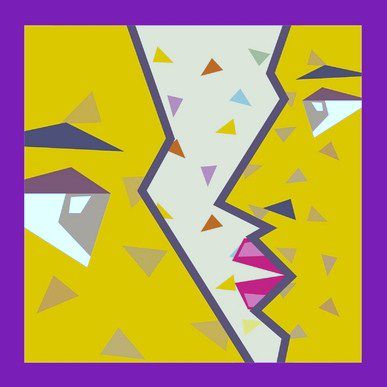The Not-So-Simple Task of Simply Being Honest, Part 1

Nothing is so difficult as not deceiving oneself.
-Ludwig Wittgenstein
We all like to feel that we know ourselves, and that we are fundamentally honest with ourselves, but is it so? Often we not only deceive other people — something we may or may not have very good reasons for doing. We also deceive ourselves. That is a problem, because sometimes deliberate not-wanting-to-know keeps us from being conscious of things that we really need to understand for our own individuation process.
To see what I mean, let’s consider one of the most common questions that is asked in this world. This question must surely also receive one of the highest proportions of deceptive responses worldwide:
“So… How are you?”
It is not merely that the answers given to the questioner in response to this question are knowingly false. It is, that on a deeper level, we very often are untruthful or inaccurate in what we allow ourselves to know in response to this question. If we were to reflect, we would realize that our answers are not only superficial, they are often untrue. For instance, we humans are quite capable of responding by telling people, “Fine, thank you!” when in fact we may be wrestling desperately with anxiety or depression. It is not merely that we are choosing to be deceptive of others. It is that we are choosing not to know — to deceive ourselves.
Sometimes the truth is very hard to look at, head on. We can become acutely aware of this when there are aspects of ourselves at which we would rather not look. For instance, it can sometimes take people a great deal of effort to look at their early life, and to acknowledge the ways in which it was filled with sadness. Or similarly, loyalty to parents may prevent a person from acknowledging that the relationship with that parent was, or is, a very difficult one. Again, because we often have such an ego investment in relationships, acknowledging that a marriage or a partnership may not be good for us may hold similar difficulties. Similarly, the capacity of individuals to rationalize or deny in situations of addiction or abuse are well known. And the whole realm of sexuality is frequently full of things that we would rather not admit to ourselves.
To set yourself on the course of being fundamentally honest with yourself is to set yourself on the path of encounter with the unconscious. In particular, being honest with oneself often sets one on a course for in-depth encounter with the shadow, in Jungian terms. In the next Part of this series, I will be examining this encounter with shadow in more depth.
Questions to Ask about Truth and Honesty in the Inner Life
- What do I have a vested interest in believing about myself?
- What do I have a vested interest in believing about other people in my life?
- Are there things that I would really rather believe, that I have to admit are just not true?
I’d welcome your comments on this post, and on the whole subject of truth in our relationship to ourselves.
Wishing you every good thing on your personal journey to wholeness,
Brian Collinson, Psychotherapist & Jungian Analyst
[cta]
PHOTO CREDIT: © Jose Elias Silva Neto | Dreamstime.com
© 2010 Brian Collinson

W.Marlene Guymer
Thank-you, Brian. Regarding the “how are you” question, I think we frequently answer insincerely because we feel the person asking doesn’t really want to know. We lose our authenticity by devaluing ourselves and, particularly, by wanting to fit in. This pressure to conform often begins within our families and, for some, may be most powerfully experienced within the extended/in-law family!
~Wendy